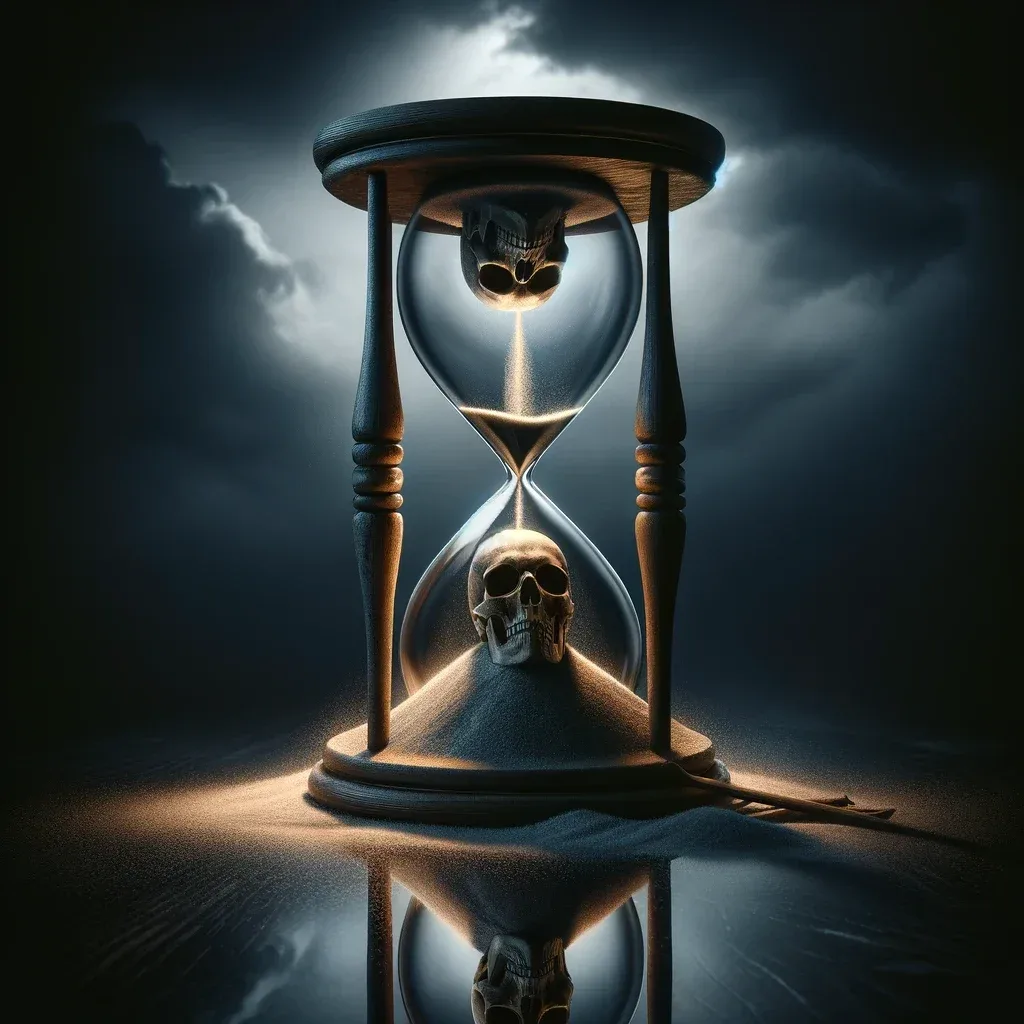Memento Mori, a Latin phrase meaning “remember that you will die,” is a fundamental principle in Stoic philosophy and has been a central theme in many cultures throughout history. This article explores the importance and deep meaning of Memento Mori and how this reflection on mortality can positively transform our lives. The awareness of death, far from being a dark thought, is a powerful reminder to live a full and meaningful life.

The Historical Significance of Memento Mori

Ancient Origins
Memento Mori has its roots in antiquity. Initially, it was a reminder to victorious Roman generals of their mortality. During his triumphs, a servant whispered “Respice post te. Hominem te esse memento” (Look behind you. Remember you are just a man), to remind them of their humanity and mortality.
Memento Mori in Art and Culture
Western art and literature are filled with depictions of Memento Mori, from the Middle Ages through the Victorian era. Paintings, sculptures and writings often depict symbols such as skulls, hourglasses and withered flowers to symbolize the transience of life.
Influence on Philosophy and Religion
Memento Mori has been a central theme in several philosophies and religions. In Christianity, for example, it is a reminder of the ephemerality of earthly life and the importance of living in accordance with spiritual values.
The Relevance of Memento Mori Today

Awareness of Mortality in the Modern World
In modern society, we often avoid thinking about death. However, awareness of our mortality can motivate us to live with more purpose and authenticity, valuing every moment we have.
Memento Mori and Mental Health
Far from being depressing, the recognition of Memento Mori can be psychologically liberating. It offers a perspective that can ease anxiety and stress by reminding us that many of our fears and worries are transient.
Memento Mori in Decision Making
By remembering our mortality, we are encouraged to make choices that reflect our deepest values and to live a life that will be remembered positively by those we leave behind.
How to Incorporate Memento Mori into Your Life

Daily Practices
Incorporating Memento Mori into your daily life can be as simple as reflecting on the ephemerality of life every morning or having a symbolic object, like a small skull, in your workspace.
Establishing Priorities
Memento Mori helps us focus on what really matters, encouraging us to spend time with loved ones, pursue passions, and avoid procrastination.
Facing the Fear of Death
By accepting the inevitability of death, we can overcome the fear that often prevents us from living fully. This can lead to a greater sense of peace and satisfaction with life.
Memento Mori in Modern Life

Impact on Interpersonal Relationships
Remembering our mortality can improve our relationships as we become more empathetic, patient, and less inclined to hold grudges.
Personal Development
Memento Mori encourages us to seek personal growth and development, focusing on what really matters and leaving aside the trivial.
Finding Meaning and Purpose
Awareness of our finitude can be a powerful motivator for finding and pursuing a greater purpose in life, leading to a greater sense of fulfillment and contentment.
Conclusion
Memento Mori is more than a grim reminder of death; it is an invitation to live a richer and more meaningful life. By embracing this principle, we can find greater clarity, purpose, and joy in our lives. This reminder, which you desperately need, serves as a compass to guide us through the complexity and beauty of the human experience.
Introduction to Memento Mori FAQ
This FAQ addresses frequently asked questions about the concept of Memento Mori and its application in modern life. Here, we explore the most intriguing aspects of this ancient reminder, its historical significance, and how it can positively impact our perception of life and death.

Memento Mori Frequently Asked Questions
1. What does Memento Mori mean?
2. What is the historical origin of Memento Mori?
3. How can Memento Mori impact mental health?
4. How does Memento Mori affect decisions in everyday life?
5. How to incorporate Memento Mori into daily life?
6. What is the impact of Memento Mori on interpersonal relationships?
7. How does Memento Mori help us face the fear of death?
8. How does Memento Mori influence personal development?
9. What is the relevance of Memento Mori in modern culture?
10. Can Memento Mori help you find meaning and purpose in life?
This FAQ offers a deep dive into the concept of Memento Mori, clarifying how this ancient reminder can be a powerful tool for transforming our perception of life and death.





